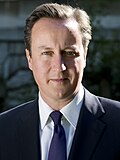6 May 2010 | |||||||||||||||||||||||||||||||||||||||||||||||||||||||||||||||||||||||||||||
All 40 Welsh seats to the House of Commons | |||||||||||||||||||||||||||||||||||||||||||||||||||||||||||||||||||||||||||||
|---|---|---|---|---|---|---|---|---|---|---|---|---|---|---|---|---|---|---|---|---|---|---|---|---|---|---|---|---|---|---|---|---|---|---|---|---|---|---|---|---|---|---|---|---|---|---|---|---|---|---|---|---|---|---|---|---|---|---|---|---|---|---|---|---|---|---|---|---|---|---|---|---|---|---|---|---|---|
| |||||||||||||||||||||||||||||||||||||||||||||||||||||||||||||||||||||||||||||
 Colours on map indicate winning party for each constituency †Notional 2005 results on new boundaries. *Owing to electoral boundaries changing, this figure is notional. | |||||||||||||||||||||||||||||||||||||||||||||||||||||||||||||||||||||||||||||
These are the results of the 2010 United Kingdom general election in Wales. The election was held on 6 May 2010, and all 40 parliamentary seats in Wales were contested. The Labour Party remained the party with the most seats in Wales, however it suffered a net loss of 4 seats and its share of the vote dropped by 6.5%. The Conservatives increased their number of seats by 5 and the Liberal Democrats and Plaid Cymru saw little change both in the number of seats and share of the vote.
Despite the Labour party winning the most votes in Wales, the Conservatives won across the UK. [2] Also, by the share of the vote, the Labour Party got their worst result since 1918 (in 1918 election the Labour Party didn't have candidates in all Welsh constituencies).



